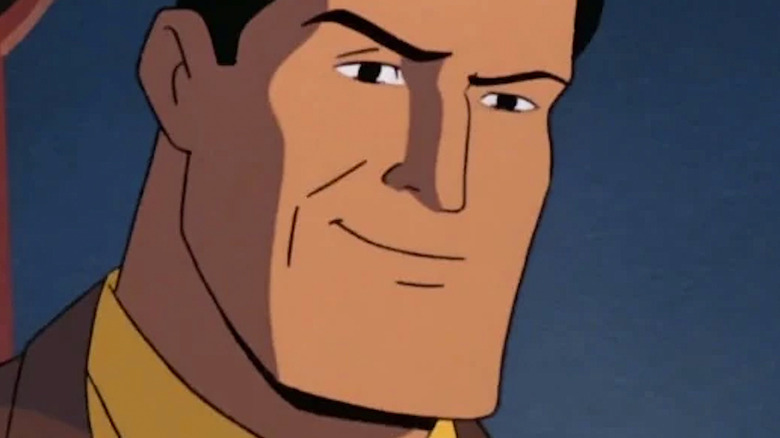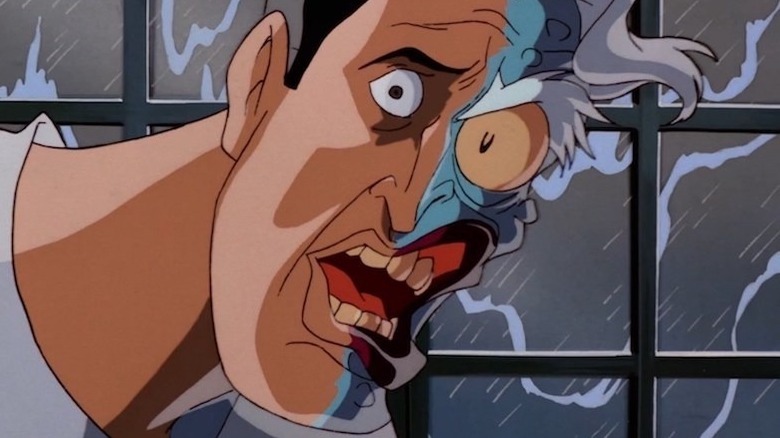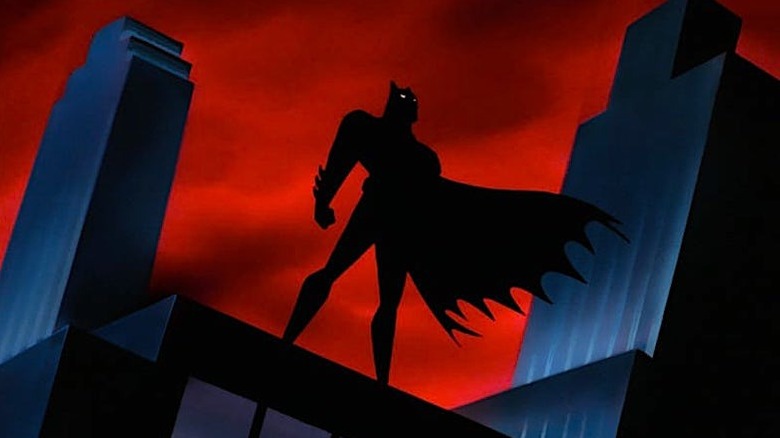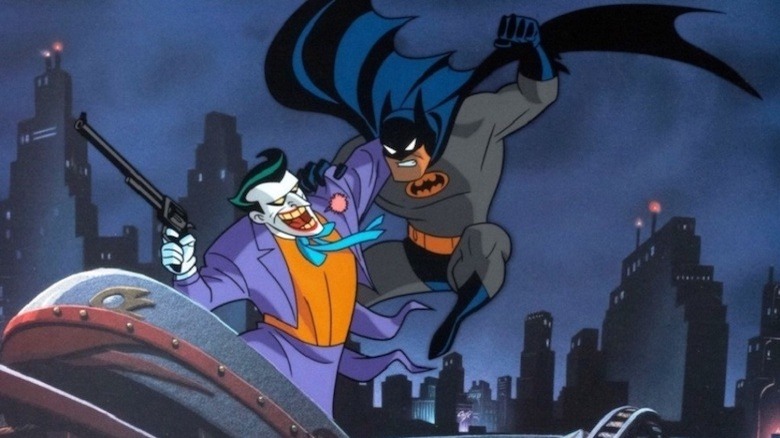The Greatest Animated Series Of All Time May Never Be Dethroned
Cartoons might've started out as simple programs to keep kids entertained on a Saturday morning, but the medium has evolved to greater and greater heights in the last few decades. Animation often allows writers to really lean into wild concepts and ideas without the constraints of a live-action budget, and it has really become something audiences take more seriously. And one of the best things about animation is that it can suit any genre or story — no matter how wild the concept is.
Thanks to studios like Pixar, there are now plenty of critically-acclaimed animated movies, but when it comes to TV, that list gets a little smaller. Sure, most people have an animated show that they love because it reminds them of being a kid, or because it features their favorite character, and so on. But there are only a handful that have truly changed the medium forever, and even fewer that manage to do so while also handling a beloved franchise. However, throughout the landscape of cartoons that adapt comics, books, and manga, the greatest animated program of all-time is a 1990s series that may never be topped — not because of how it adapted one of the world's most iconic superheroes, but also how it added to that character's mythos in ways that continue to reverberate to this day.
Yes, we're talking about "Batman: The Animated Series," and here's why it stands the test of time.
Batman: The Animated Series doesn't dumb things down for younger audiences
While other comic book shows of the 1990s definitely catered to younger viewers on some level, "Batman: The Animated Series" never dialed down Gotham's grim world. The writers didn't feel the need to infantilize everything just to make it suitable for TV. Yes, the series has plenty of light-hearted moments scattered throughout the crime-ridden streets, but it all feels plausibly serious. For example, all the mobsters and villains carry guns that look like guns — compared to "Spider-Man," where — presumably, thanks to censorship — everyone carries laser pistols. Still, whether due to chance timing or intention, the point is that "Batman: The Animated Series" doesn't sanitize the analogue world of this timeless Gotham, with its 1930s cars and blimps that somehow coexist alongside the Dark Knight's high-tech arsenal of gadgets and supercomputer.
Nor does the series dial down the violence that goes hand-in-hand with the many colorful characters the Caped Crusader goes up against. Just look at Harvey Dent's (Richard Moll) haunting transformation into the twisted mobster Two-Face, as seen in Season 1, Episode 10. After the initial acid attack, he wakes up in hospital, and goes on a rampage once he realizes what's been done to him. The show doesn't shy away from the horror of his wounds and the gravity of his situation, but it depicts it in such a way that doesn't look too grotesque. It also makes Dent's mental state overtly clear, and instead of having Batman just try and beat the villain into submission, Bruce's first thought is about trying to help his friend.
It's that kind of well-rounded writing that makes the show so captivating with each gripping adventure. And maintaining that level of quality over 85 episodes is truly impressive.
The gorgeously unique animation
On top of that, there's the stunning animation style, which completely separates it from the rest of the pack when it comes to animated superhero shows. As mentioned above, the 1930s aesthetic gives the show a truly unique feel, just in the atmosphere it creates: Maybe it's the looming skyscrapers and the dark streets, but Gotham feels like it's teeming with criminals who are just waiting to pounce on any innocent civilian they happen to come across. And while some of the action occasionally takes place during the daytime, the city really comes alive at night, thanks to the roaming spotlights from the GCPD blimps and the roar of the traffic blaring in the streets below.
This art style quickly became the signature look for that era of DC animated shows, and the show's influence can be felt across the likes of "Superman: The Animated Series," "Justice League," and "Justice League Unlimited." The series used light colors on black backgrounds to create the noir feel to this world, and Batman's enveloping cape always fits right in with those shadows.
But just as "Batman: The Animated Series" knows how to use darkness, it also knows how to use color, particularly when depicting the madcap array of foes that Batman (Kevin Conroy) faces. Remember, this is the show that gave birth to Harley Quinn (Arleen Sorkin). Her black and red jester jumpsuit is nothing short of iconic, and it makes her instantly recognizable alongside the Joker (Mark Hamill), which is no easy feat. Harley has since become a phenomenon in her own right, not only being introduced to the comics, but now being a major presence in the DCEU, where she's played by Margot Robbie, and featuring in her own animated program, where Kaley Cuoco voices her. None of that would've happened without the 1992 series leading the way.
Kevin Conroy plays the ultimate Batman alongside a wealth of talent
Batman is one of those legacy roles where numerous actors take their turn defining the character for a generation, with each exploring different aspects of him. In that respect, he's a little bit like Hamlet, Sherlock Holmes, or James Bond. But come on, the vocal talents of Kevin Conroy are on another level. For people across generations, he has become the definitive voice for both Bruce Wayne and Batman, while most live-action stars seem to nail either one or the other. The power and gravitas that he brings to the role perfectly captures the vigilante's demeanor in a way that is by now so cemented in the heads of audiences that many, many comic readers will describe Conroy's take as the voice they hear in their heads when reading Batman comics – just look at the praise heaped on the star on Reddit and Twitter. That's why it was such a big deal that Conroy actually played a live-action version of the Caped Crusader in the Arrowverse version of "Crisis on Infinite Earths," showing that his voice transcends the animated medium.
And if that wasn't enough, "Batman: The Animated Series" features Conroy alongside a ridiculously talented cast, with Mark Hamill's Joker obviously being a stand-out performance. His gleefully sinister laugh is truly terrifying, and still remains definitive, even in a landscape where incredible actors like Heath Ledger and Joaquin Phoenix have taken on the same role. And who can forget Conroy's electric chemistry with Adrienne Barbeau's Catwoman? Or John Glover's scheming Riddler? Ron Perlman's Clayface? The list goes on.
All this is to say that "Batman: The Animated Series" is a groundbreaking, cutting-edge show that was stunningly crafted by everyone involved. It may never be dethroned as the greatest animated series of all time, though "Avatar: The Last Airbender" could certainly make a case.



